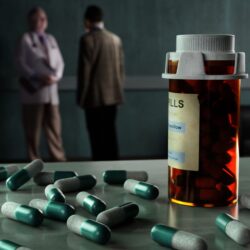Clinical Researcher—September 2021 (Volume 35, Issue 7)
SITES & SPONSORS
Elizabeth Weeks-Rowe, LVN, CCRA
With site evaluation visits, that adage about how “presentation is everything” rings true and applies to far more than the confirmation of the capabilities of a site’s facilities and equipment. It even extends beyond the training and experience of the investigational staff. An integral element of site evaluation is the fundamental first impression (or communication flow) between the site and sponsor, the cornerstone from which that important relationship flourishes.
How a site presents its capabilities to a prospective study sponsor means everything; how enthusiasm is demonstrated, how information is communicated, and how abilities and logistics are translated will most definitely influence site selection decisions. Considering that the key to a successful site evaluation is how the site is showcased to demonstrate experience, equipment, and patient access, choosing the appropriate site representatives to carry out the presentation is paramount to facilitate this process.
The site representatives must be knowledgeable, to be sure, but also should have the right balance of clinical savvy and winning personality to make the best impression. Anyone with sufficient understanding of the investigational site can answer the essential questions regarding site infrastructure/policy/process, site personnel/experience, and site equipment/ facilities, but the idea, well-rounded researcher charged with shepherding site evaluation visits can also frame the narrative with enthusiasm and finesse to strengthen the site’s image.
The following sections define the qualities I see as contributing to strong site evaluation representatives.
Know Thy Site
Investigational site models are as diverse as the personnel they employ. The dedicated research site, the academic health center/large health institution, and the physician practice with a research department; each have unique infrastructure, policies, and personnel for supporting the research within said model. Site familiarity—truly knowing the investigational site—is integral to present an effective site picture.
It is a verbal and visual process, with dialogue between sponsor and site personnel to confirm policies, processes, and personnel (verbal) being followed by the physical tour to confirm facilities and equipment (visual). Though site representatives may have a wealth of knowledge about their facility, they won’t risk missing or incorrect information. They will banish ego from the process and seek answers to the unconventional queries that may also come up, such as: confirming all institutional research standard operating procedures with quality assurance, obtaining the expiration dates of Good Clinical Practice training certificates for immediate research staff, and defining the breadth of principal investigator (PI) research experience (i.e., number of years as a PI, number of studies conducted, and therapeutic areas).
If the study has specific equipment criteria to support endpoints, a site representative will confirm the parameters with each respective department (e.g., make/model of freezers for the investigational product, imaging specs for computed tomography equipment, respiratory therapists for pulmonary function testing). The smallest details demonstrate conscientious consideration which speaks volumes about the site’s efforts to obtain and sustain studies.
Know Thy Self
Site representatives hosting evaluation visits should have a plethora of qualities to assure positive institutional representation. However, they are not expected to know everything and should solicit experienced colleagues to supplement any deficiencies. They are not expected to be a television host with a gleaming smile and perfect poise and articulation. They should strive to demonstrate the “3 Ps and a C” that embody an appropriate site representative: courtesy, professionalism, positivity, and preparedness.
Courtesy and Professionalism
The site representative is the proverbial host and should ensure a friendly, comfortable atmosphere during the visit. Conversation should extend beyond strictly clinical topics; small talk before the official “talk” can go a long way to breaching barriers and encouraging open dialogue. People appreciate it when someone takes an interest in them beyond their profession; they are much more than the task they perform.
Remember the value of soft skills such as maintaining eye contact, not interrupting conversations, and saying please and thank you—these should never be assumed unnecessary or underestimated. The site representative should remind each attendee, a day or two before the visit, of their start time and duration of participation to ensure there are no schedule conflicts or barriers to attendance.
Positivity
Site representatives should positively represent their institution throughout the site evaluation visit process. This is best accomplished with knowledge of institutional research accomplishments and transparency of capabilities during the study discussion (knowing what can be done, and proffering solutions when equipment or logistics don’t align with study requirements).
For example, if the study has pharmacokinetic lab draws that require a refrigerated centrifuge, but the site lacks this type of centrifuge, the answer should not stop with the missing equipment. Instead, the dialogue should be continued with the site representative asking if he or she can build rental of the centrifuge into the study budget, or alternatives for acquiring equipment. If the study requires a complicated study drug reconstitution process, an experienced pharmacist should attend the evaluation to discuss his or her experience with similar investigational drug infusions.
Finally, site personnel should demonstrate enthusiasm for study participation. This quality will positively impact the process.
Preparation
When the sponsor representative schedules the evaluation visit, the site representative should confirm meeting times with all personnel involved and provide an agenda in the event multiple departments and ancillary locations are involved. They should ensure all participants have the protocol synopsis and slide presentation for review prior to the meeting. They should have a copy of the feasibility survey at hand to offer enrollment statistics for studies conducted in the same therapeutic area. They should complete all required paperwork by the time of the visit to ensure and efficient and organized process.
Know Thy Colleagues
For smaller research sites, often one key individual is more than capable of conducting the site evaluation visit. However, at larger institutions, all departments potentially participating in the study will require representation during evaluation to accurately convey the full site picture of capabilities. The site representative should understand how each department representative will interact with the sponsor representative during the evaluation visit; essential personnel must be vetted and coached, if necessary. Each person has the potential to make an impression that will influence site selection decisions. From the pharmacist to the PI, everyone must have a clear understanding of the time requirements, conversational parameters, and appropriate behavior and discussion topics.
I once completed a site evaluation visit at a large academic health center. The research nurse was pleasant, knowledgeable, and enthusiastic about site participation. All departmental personnel participating provided comprehensive information about capabilities without issue. However, when the time came for the pharmacy tour and investigational product discussion, the evaluation visit took a decidedly negative turn.
The pharmacist was stern and tried rushing the process. She commented on the pharmacy’s large workload and sparse storage space. She seemed to purposefully discourage interest and made us both feel uncomfortable. After the pharmacy tour, the research nurse apologized and assured me the pharmacy could accommodate the study requirements. Though I did ultimately recommend the site for the study, the pharmacist’s negative attitude created uncertainty in the overall ability of the site to conduct the study.
Conclusion
A site representative who embodies the enthusiasm, information, and professionalism to best showcase the investigational site will help take the institution from assessment to selection status.

Elizabeth Weeks-Rowe, LVN, CCRA, (elizabethwrowe@gmail.com) is a former clinical research coordinator who now works in site selection and education in the contract research organization industry. She last wrote for Clinical Researcher in March on “What Does Clinical Trials Success Look Like After a Sink or Swim Year?”



